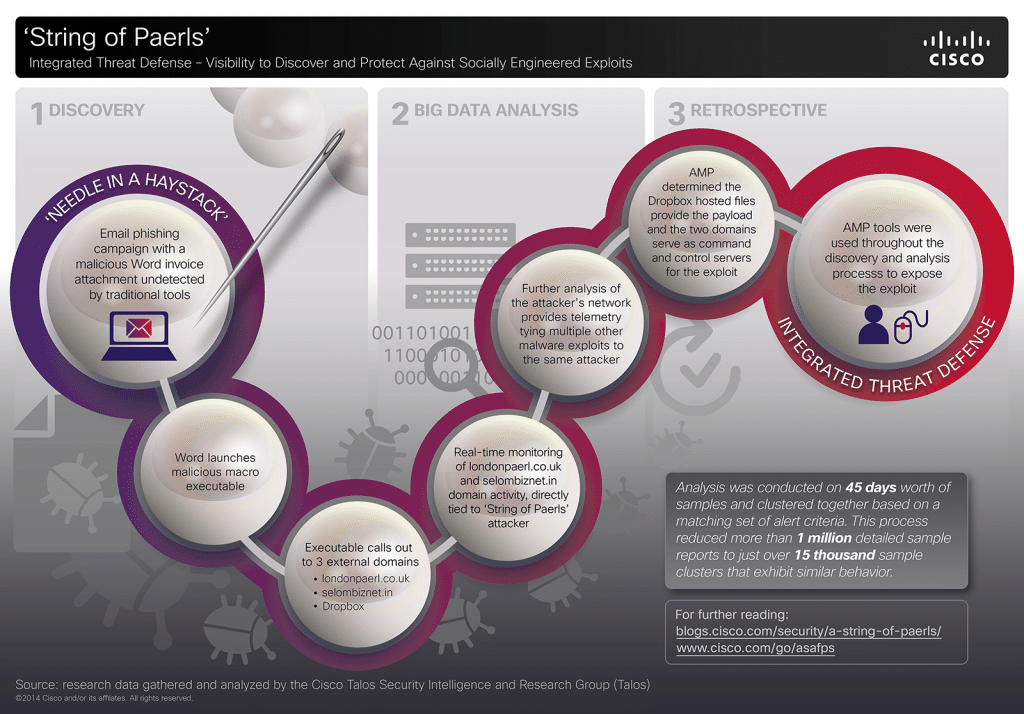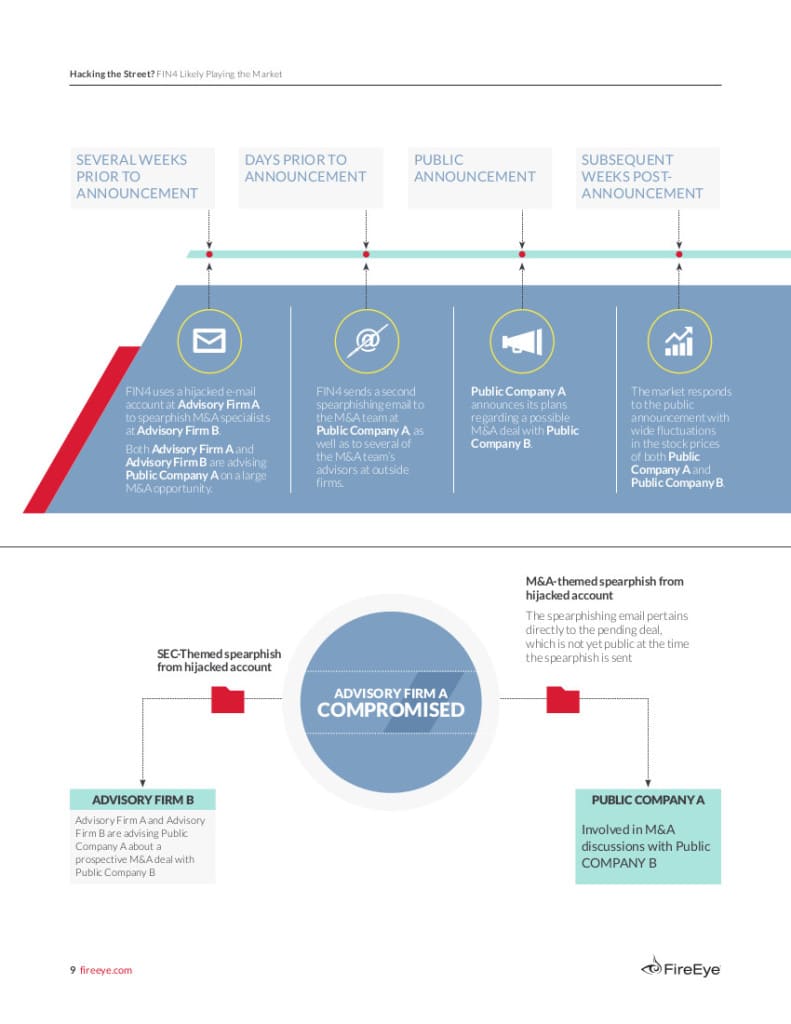In-brief: Websense has uncovered a phishing scam that uses “urgent” e-mails from executives to fool employees into wiring money overseas.
Tag: e-mail
Was Malware Behind A Billion Dollar Heist?
In-brief: The New York Times reports on a massive online heist involving more than 100 banks worldwide and losses of between $300 million and $1 billion, according to the security firm Kaspersky Lab.
With Multi-Vector Attacks, Quality Threat Intelligence Matters
In the last year, the world’s attention has been riveted by a series of high-profile hacks of major corporations in retail, finance and the entertainment industry, among others. Each of these incidents is unique, involving different threat actors and motives. However, each of these attacks is also a sterling example of what we, at Cisco, term “multi-vector attack” that employs a range of technologies, deployed in numerous stages, to penetrate the defenses of the target organization. Here at Cisco, we have studied these attacks in-depth and have identified some commonalities among these multi-vector attack, and useful approaches to combat them. This blog post will discuss some of our findings. About Multi-Vector Attacks Any cyber attack, large or small is born from a weak link in the security chain. These weak links take many forms: poorly configured Web servers, gullible employees or vulnerable-but-common applications like Microsoft Office, Adobe Reader and Java are common examples. Multi-vector attacks […]
Report: Cyber Ring Stole Data To Game Stock Market | Reuters
Reuters has the story this morning about a new report out from the folks at FireEye about a cyber espionage ring that targets financial services firms. The campaign, dubbed FIN4 by FireEye, stole corporate secrets for the purpose of gaming the stock market. FireEye believes that the extensive cyber operation compromised sensitive data about dozens of publicly held companies. According to FireEye the victims include financial services firms and those in related sectors, including investment bankers, attorneys and investor relations firms. Rather than attempting to break into networks overtly, the attackers targeted employees within each organization. Phishing e-mail messages led victims to bogus web sites controlled by the hackers, who harvested login credentials to e-mail and social media accounts. Those accounts were then used to expand the hackers reach within the target organization: sending phishing email messages to other employees. The criminals behind FIN4 sought data that could be useful to stock traders, including Securities and […]
Customer Support A Weak Link In Two Factor | Ars Technica
Ars Technica has an interesting write-up on an apparently successful compromise of Google’s two-factor authentication technology. Though in this case, the culprit wasn’t any system Google deployed or managed, but a gullible customer support representative working for the victim’s cell phone carrier. According to this post over at Facebook-for-hipsters site Ello.co, Grant Blakeman woke up on a recent Saturday morning to find that his Google account had been hijacked – despite the fact that he used Google’s two-factor authentication to protect access to the account. How? Blakeman enlisted the help of none-other than Mat Honan, whose own struggles with account hijacking became the subject of a much-cited Wired feature article. As with Honan, Blakeman’s valuable three-character Instagram account, @gb, appears to have been the lure for hackers. (Honan’s @mat Twitter account was what lured his attackers.) Read “Researchers sidestep Paypal Two-Factor Authentication.” After a conversation with Honan, Blakeman contacted his cell provider and […]





